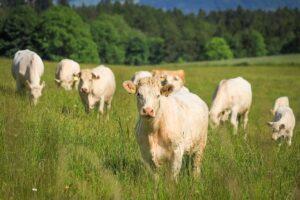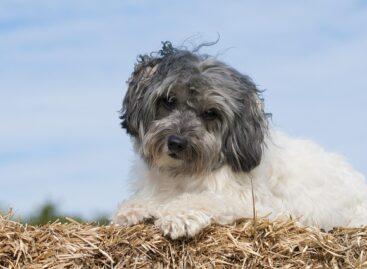ÖK’s research project helps protect wildlife from the harmful environmental effects of ivermectin
Grazed animals are treated with anthelmintics, which, if released into the wild, pose a threat to the local insect and bird life. The ecologists of the HUN-REN Ecological Research Center (HUN-REN ÖK) are looking for a solution to this problem. During the research project called Life for Bugs and Birds, they are investigating how to avoid the release of ivermectin-containing substances into nature.

(Photo: Pixabay)
In Wednesday’s announcement of the HUN-REN Hungarian Research Network, they remind us that arthropods are drastically declining all over the world, and in many cases human activity that changes habitats plays a role in this. One such harmful human intervention in grazing areas is the treatment of animals with anthelmintics such as ivermectin, which are used in many places. The announcement quotes Szabolcs Lengyel, scientific advisor of HUN-REN ÖK, project leader, who said: the grazed animals are turned out to the pasture in early spring, so the anthelmintic agents get there through their manure. The dung beetles lay their eggs in the manure or are driven away by the grubs, and the dewormer destroys their eggs or hatching larvae. “It can be clearly demonstrated that by grazing animals treated with ivermectin, the population of arthropods – in the absence of reproduction – can be reduced by a third or a half in just five years,” the ecologist pointed out.
Since the use of the effective agent cannot be stopped in animal husbandry, ecologists have had to find ways to coexist with the animal health use of ivermectin while ensuring the protection of natural wildlife.
During a research project supported by the Life program of the European Union, started two years ago, the researchers came to the conclusion that a lot can be done to reduce environmental pollution even by changing the timing of ivermectin treatment. The agent breaks down and is excreted from the animal’s body relatively quickly, so if the animals are treated with it six weeks before the grazing season or after the season, when turning in (for example in November), then they will not excrete anthelmintics with their manure during grazing. In this way, they protect the insect community of the pasture, which plays an important role in the breakdown of manure on the pasture.
According to the report, as a result of the project, insect-friendly grazing has already started in Miklapustán, located between Harta and Akasztó, belonging to the Kiskunság National Park
The researchers not only examined the effect of grazing on insect communities, but also the populations of birds that eat insects, with special emphasis on four species of shorebirds – the széki lila, the gulipán, the grebe and the stork. According to the report of the project manager, the big result of the program is that the plover nested for the first time in many years in the ivermectin-free core area. They also added that conventional grazing is taking place in other areas of the examined pastures, meaning that ivermectin and other anthelmintics are also used for the animals. In these areas, ecologists have created artificial habitats for arthropods before the start of wintering, in order to facilitate their wintering and next year’s reproduction.
MTI
Related news
In 2025, FruitVeB considered the support and professional coordination of the TÉSZs as its priority task
🎧 Hallgasd a cikket: Lejátszás Szünet Folytatás Leállítás Nyelv: Auto…
Read more >Related news
What goes on a dog’s plate? Here’s the test of dog salami!
🎧 Hallgasd a cikket: Lejátszás Szünet Folytatás Leállítás Nyelv: Auto…
Read more >








